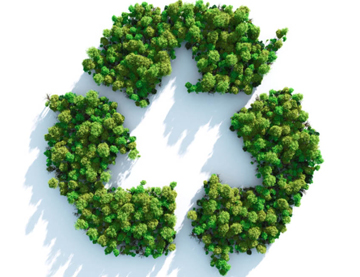Banner Image

‘Reduce, reuse and recycle’ has become the mantra for many Australian students and their families.
Thanks to the education they receive at school, chats and projects at home and what they absorb from social media and the news, many students are passionate about reducing their environmental footprint.
But how do you transfer your students’ learnings on sustainability to your next school activity, school excursion or school camp?
Our guide will help you highlight the concepts of social responsibility – while keeping your school camp, school excursion or school activity clean and rubbish-free.
Waste-free lunches
Encourage eco-friendly lunches on school excursions by cutting down on food packaging, single-use and disposable items.
Let students ‘walk the talk’
Encourage your students to take charge of specific recycling activities at school. For example, students could take turns to be ‘recycling monitors’ to ensure the school community is disposing of recycling materials, waste and plastics correctly.
Hydrate with care
Encourage students to bring their own reusable water bottle on school excursions, school activities and school camps. Not only will this cut back on plastic waste, but it will also reduce your carbon footprint. Check ahead that the venue you are visiting has a water refilling station.
Follow the rubbish trail
Many local councils or waste management authorities run school excursions that teach students what happens to their waste once it leaves their house, or the school yard. Where exactly does that apple core go? And what about those fruit juice bottles? Your students may be surprised to see how hi-tech waste management has become.
Audit your camp kitchen
Visit your camp kitchen and look at all the foodstuffs that have been purchased for your stay. Discuss the packaging that has been used to package the meat, fruit, vegetables, cereals and drinks for your camp. Discuss with your students how the packaging could have been improved. For example, is the meat packaged on foam trays or in a reusable container? Have fruit and vegetables been bought in bulk in cardboard trays or boxes, or are they individually wrapped and packaged in foam and plastic?
Leave no trace
Leave No Trace is Australia’s national minimal impact organisation. It has developed 7 Principles to encourage visitors to parks and wilderness areas to ‘responsibly enjoy’ and actively care for their natural surrounds. The 7 principles are:
• Plan ahead and prepare
• Travel and camp on durable surfaces
• Dispose of waste properly
• Leave what you find
• Minimise campfire impacts
• Respect wildlife
• Be considerate of your host and other visitors.
For more information about the 7 Principles visit Leave No Trace Australia
www.lnt.org.au
Get creative on waste
Incorporate fun, educational activities into your curriculum to keep students engaged about waste while they learn.
Reverse Garbage Education Programs run a range of creative reuse workshops specially designed to build skills, challenge and engage students of all ages about sustainability and reuse.
Activities for primary students include creative reuse workshops; hands-on experience designing and constructing with waste materials; and encouraging students to ‘think like designers’ by investigating the properties of materials, appreciating their value and putting them to good use.
A popular option for secondary groups includes a warehouse exploration tour, a recycling challenge and a hands-on maker workshop.
To learn more about Reverse Garbage, visit https://www.schoolactivities.com.au/school-activities-directory/reverse-garbage-education-programs
